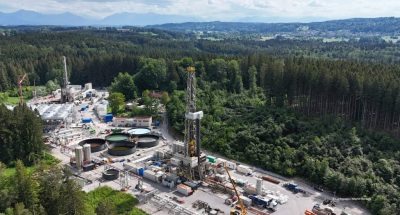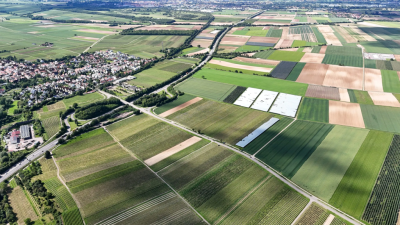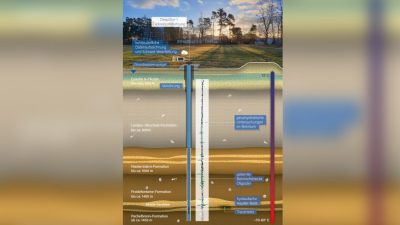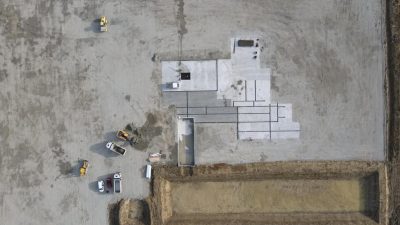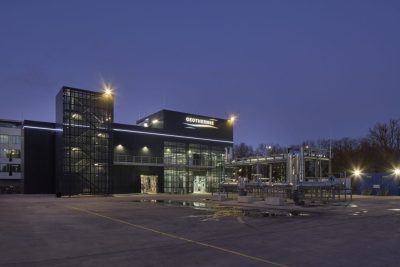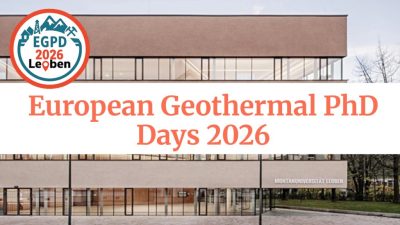Alemania apunta a 100 nuevos proyectos geotérmicos para 2030
El Gobierno Federal de Alemania ha publicado un documento de temas clave que describe estrategias para lograr un objetivo de 100 proyectos geotérmicos adicionales para 2030.
El Ministerio Federal de Economía y Protección del Clima de Alemania (BMWK) ha publicado un documento temático clave que destaca las estrategias para desarrollar proyectos geotérmicos de profundidad media y profunda, aunque también se abordaron algunos aspectos de la geotermia cercana a la superficie. Se puede acceder al documento titulado “Piedras angulares para una campaña geotérmica” a través de este enlace (en alemán).
A febrero de 2022, hay 42 proyectos operativos de energía geotérmica profunda en Alemania: 24 en Baviera, 6 en Renania del Norte-Westfalia, 3 en Baden-Württemberg, 3 en Mecklemburgo-Pomerania Occidental, 3 en Renania Palatinado, 2 en Brandeburgo y 1 en Hesse. Estos representan una capacidad de 343 MWth. Hay otros 4 proyectos en construcción y 4 clasificados como proyectos de investigación.
El documento de temas clave establece una estrategia para apuntar a 10 TWh de producción geotérmica de recursos de profundidad media y profunda para 2030. Esto efectivamente aumenta diez veces la alimentación actual a la red de calefacción de la geotermia. Por lo tanto, el Gobierno tiene como objetivo agregar al menos 100 proyectos geotérmicos adicionales para 2030, conectarlos a redes de calefacción y hacer que la energía geotérmica sea utilizable en edificios residenciales, vecindarios y procesos industriales.
El documento identifica ocho medidas para lograr estos objetivos (en inglés):
- Exchange with stakeholders – Involve the stakeholders in the process and organize dialogues between associations, companies in the sector, and federal states.
- Data campaign – Launch a nationwide database within the next 2 years containing accessible and processed information on local geothermal potential. This will be done with the Federal Institute for Geosciences and Natural Resources (BGR) and the Leibniz Institute for Applied Geophysics (LIAG).
- Exploration campaign – Investigate at least 100 sites with expected good geothermal potential and usable infrastructure, ideally on existing or brownfield sites. The target is to start investigating the first promising areas as early as 2023.
- Acceleration of approval procedures – Create legislative changes that will contribute to the acceleration of planning and approval procedures for geothermal energy projects and monitor their implementation status. The relevant ministries have already set up a steering group at state secretary level to address this matter. Dialogues with federal states and state geological services will also be done.
- Support programmes – Implement targeted support programmes that will prepare the market and make geothermal projects more economically competitive. These include the federal funding for efficient heating networks that can cover up to 40% of investment costs of geothermal heating projects.
- Risk mitigation – Examine the extent to which risk hedging instruments can be used to reduce the reduce the financial risks for project developers. Discussion are already underway with scientific and financial communities regarding this matter. Item number 2 on data campaigning also aims to reduce the exploration risk.
- Skilled personnel and availability of measuring and drilling equipment – Provide support for retraining, flexibility, and technical training to address the challenges of lack of skilled workers in the well construction and drilling sector and the heating and air-conditioning trade.
- Acceptance – Promote information campaigns by company owners and municipalities to create regional acceptance of geothermal and address prejudices against drilling projects. The focus will be on regions that are particularly suitable for exploration.
La Asociación Geotérmica Alemana (BVG) cree que el documento es “un paso correcto hacia un suministro de calor confiable y respetuoso con el clima y una señal importante para la industria”, según el presidente de BVG, Helge-Uve Braun. Sin embargo, Braun también advierte que no se debe descuidar el potencial de la energía geotérmica cercana a la superficie porque una transición de calor exitosa solo será posible si se agota todo el potencial geotérmico”.
La BVG se había unido previamente a una alianza de asociaciones de energía en Alemania para pedir políticas que permitan la expansión rápida y creciente de la energía geotérmica profunda.
Fuente: BMWK and Bundesverband Geothermie






